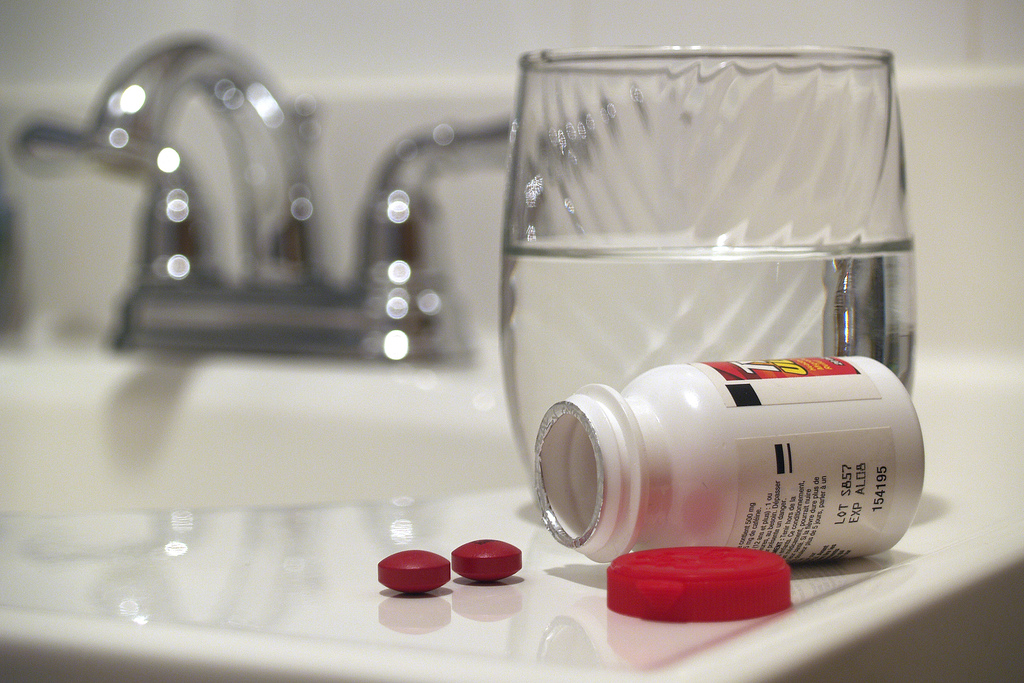By Nadine Moedt (The Cascade) – Email
Print Edition: March 19, 2014

Take one tablet every four hours as needed, the Tylenol container meekly suggests. Read the complete label; follow all the directions. Apart from a few bold words, the instructions are docile and placid. Like the safety instruction routine dutifully carried out by airline stewards before each flight, the words, repeated ad nauseam, have lost their power to grip regular users.
However, a recent Toronto Star investigation found that acetaminophen, the active ingredient in pain-killers like Tylenol, Benylin, Neocitran, and Nyquil, is a little more volatile than the label lets on.
In the last decade, acetaminophen has sent nearly 13,000 Canadians to the hospital, and been a major or contributing cause in the deaths of hundreds more. Health Canada has received 2402 reports of acetaminophen overdose cases since 2005; among these, 287 were fatal. While acetaminophen is a common means of attempting suicide, many cases of overdose are accidental, caused by taking relatively little over the recommended dose.
Billions of pills containing acetaminophen are taken as directed on the label without adverse reactions worldwide, but there is serious danger associated with even the slightest overdose (more than 4000 mg or eight extra strength tablets).
Most of us have had those nights where, surrounded by used Kleenex, we reach for the Nyquil indiscriminately in an attempt to shake the symptoms of a cold. The accessibility of the drug — and in turn our lack of understanding of the risks involved — makes even the most benevolent-seeming drugs potentially hazardous. We think nothing of popping a pill or two over the recommended dose, yet that might be enough to cause serious harm. It’s just Tylenol, we think, how dangerous could it be?
Acetaminophen is older than any regulatory standards that might be imposed on it; it was first introduced to the market in 1893. According the Star, if acetaminophen was entering the market now as a new drug, it would not be available to the public without a prescription.
Gerry Harrington, director of public affairs for Consumer Health Products Canada explained to the Star that while it’s an exceptionally safe drug when taken appropriately in comparison to other similar drugs, the overdose risks make it a “real standout.”
“There’s a sharp veering into danger if you’re reckless with it,” Harrington said.
In a culture that throws the “no pain no gain” cliché out the window at the hint of a headache, the danger lies in the abundance of too-accessible drugs without the same level of information.
Consider using alternative methods of pain and cold relief if a Tylenol or dose of Neocitran isn’t doing the trick; tea and creamed honey may be more placebo than real medication, but it acts as a comfort. Boiling half a lemon with some grated ginger root relieves stress in your throat; if it’s a headache that requires a Tylenol, consider employing more preventative methods. Headaches are often caused by mild dehydration and can be easily deterred.
However, if using acetaminophen, or any other non-prescription drug for that matter, is the only effective method, make sure you take the label seriously. The margin of error between a safe dose and an overdose is much smaller than you think.

